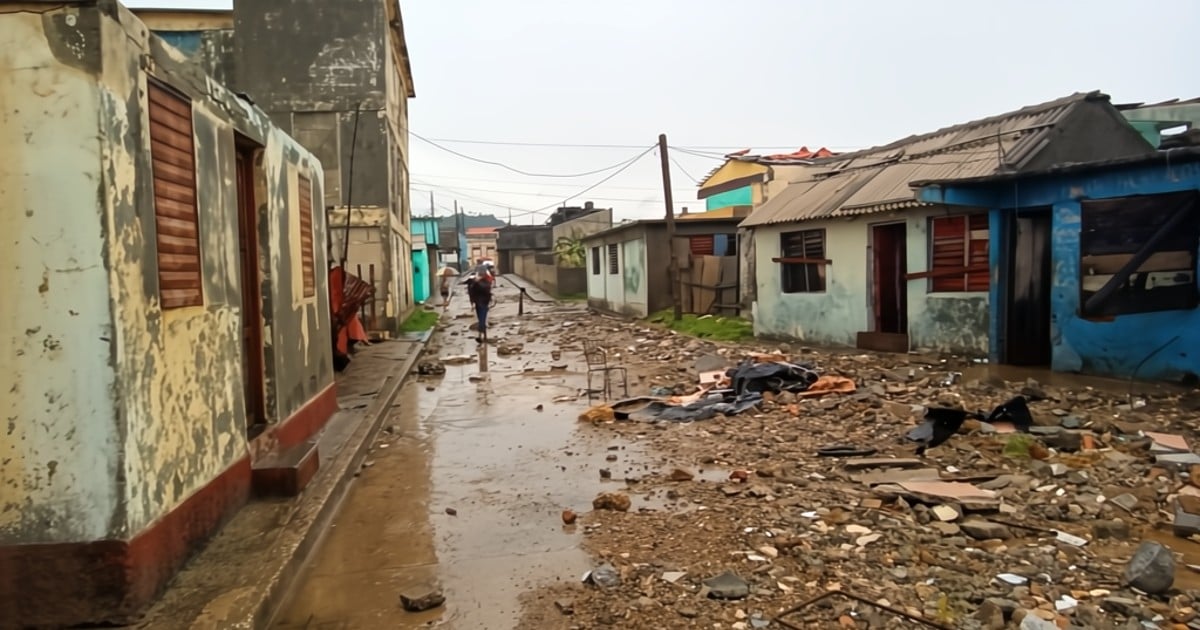In the wake of the devastating Hurricane Oscar's passage through eastern Cuba, the solidarity among Cubans has been pivotal in addressing the aftermath of the floods and destruction. In towns like San Antonio del Sur and Imías, residents have mobilized to rescue those trapped, offer shelter to the displaced, and coordinate aid shipments from abroad.
The Cuban government's response to the flooding caused by Hurricane Oscar has faced criticism for its sluggishness and lack of resources. In various locations, including San Antonio del Sur and Guantánamo, locals have voiced feelings of abandonment by the authorities, who were slow to dispatch rescue teams and emergency supplies. "They left us alone with 29 children," a local resident lamented, highlighting the government's inadequate support during the initial days of the crisis. The distribution of aid has been further hampered by resource scarcity and the difficulty of reaching isolated communities, worsening the plight of those awaiting basic assistance.
Community-Led Rescue Efforts
With the Cuban government's response falling short, the community's solidarity has filled the gap, undertaking rescue and aid efforts. As residents helped each other evacuate the vulnerable, churches and local activists became key shelters, providing food and shelter to those who lost everything. This community support network has been vital in compensating for the lack of resources and attention from authorities.
In San Antonio del Sur, neighbors organized impromptu rescues when the river overflowed, affecting several communities. Without immediate official support, they took it upon themselves to evacuate children and the elderly to safer areas. In some instances, they braved the strong currents to rescue individuals trapped in flooded homes, particularly in rural zones awaiting rescue teams.
Initiatives from the Cuban Diaspora
Cuban comedian Andy Vázquez, based in the United States, launched a donation drive for hurricane victims. Using social media platforms, he urged the Cuban community and his followers to contribute clothing, toys, non-perishable food, and medicines. He showcased received donations through videos, organizing their shipment to the hardest-hit regions in Guantánamo. Vázquez emphasized that all contributions should be material goods rather than cash.
The Methodist Church in Guantánamo provided refuge to over 60 people, including many children, who were left homeless after the floods in San Antonio del Sur. Besides offering shelter, the church supplied medicines and medical care to those affected. This initiative quickly took shape after entire communities were submerged, leaving many without a safe haven.
Support from Abroad and Local Volunteers
Cubans living abroad, primarily in Miami, came together via social media and organizations to send aid to those affected by Hurricane Oscar. These campaigns collected food, clothing, and medicines, which were channeled to activists and organizations distributing them among the most impacted communities, such as Imías and San Antonio del Sur. Emotional ties with fellow Cubans motivated many to participate, sending whatever they could.
Volunteers in San Antonio del Sur and other affected areas collaborated in cleaning mud-covered homes and streets following the hurricane. Residents organized debris removal, mud clearance, and furniture disposal, working together to assist those unable to manage these tasks themselves. On several occasions, local youth supported elderly individuals who were left alone, providing both physical and emotional aid.
Challenges and Continued Efforts
In San Antonio del Sur, a 12-year-old boy named Daniel González Hernández was rescued by neighbors and the Municipal Defense Council. Suffering a serious leg injury during the floods, he was taken to the Provincial Pediatric Hospital in Guantánamo. The local community praised the neighbors' efforts in finding and keeping him safe until he received medical attention.
In Imías and San Antonio del Sur, isolated by floodwaters and bridge collapses, the Cuban military and local activists organized food and medicine distribution. Alternative routes and air operations were utilized to deliver supplies to residents, particularly where water remained an obstacle to ground access. Aid packages included staples such as rice, beans, and potable water.
Families in Guantánamo supported each other during evacuations, offering refuge to neighbors who had lost their homes. Many relocated to the homes of friends or family living in higher areas. Social media highlighted stories of individuals who opened their doors to those left homeless by the rapid rise of waters.
The Cuban diaspora and Guantánamo residents used Facebook and other platforms to coordinate aid and search for missing persons. This enabled many families to stay informed and receive updates about their loved ones. Messages shared in groups and personal profiles called for donations and help locating those unseen since the hurricane's passage.
Local activists in Guantánamo and Havana spearheaded the collection of food, clothing, and medicines for victims, utilizing personal resources and contacts to organize deliveries. In Havana, collection points were established to receive donations, which were then sent to eastern Cuba, where the damage was most severe. These private solidarity initiatives served as an important supplement to official assistance, which was sometimes insufficient.
The Cuban people's solidarity in the face of the emergency brought by Hurricane Oscar highlights their resilience and community spirit, traits honed through years of adversity. The support networks and local initiatives, along with those from the diaspora, have been crucial in providing relief to families who lost everything. However, the extensive damage poses significant challenges for the recovery of these communities, underlining the need for ongoing efforts to rebuild and support the most vulnerable in their return to normalcy.
